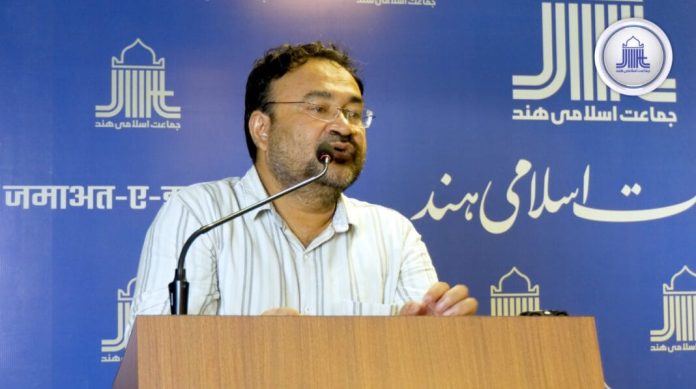New Delhi, July 30: The Union Budget 2024-25 has significantly reduced the allocation for the Ministry of Minority Affairs (MoMA) to Rs 3,183.24 crore, representing a mere 0.066% of the total budget. This marks a sharp decline from previous allocations of Rs 4,810.77 crore in 2021-22, Rs 5,020.50 crore in 2022-23, and Rs 3,097.60 crore in 2023-24.
Speaking at Jamaat-e-Islami Hind headquarters on Saturday, Dr. Javed Alam, Executive Director of the Institute of Policy Studies and Advocacy (IPSA), expressed concern over these cuts and their implications. He emphasized that budget allocations are political decisions reflecting the government’s priorities, noting a discernible shift towards certain states.
Dr. Alam questioned the BJP-led NDA government’s commitment to minority development, warning that a full majority for the BJP in future elections could lead to drastic policy changes. These might include dissolving the Ministry of Minority Affairs and withdrawing crucial fellowship schemes for Muslim students, which support education and skill development.
The budget’s focus on economic initiatives was also highlighted, with Rs 12,000 crore allocated to the Ministries of Corporate Affairs and Labour and Employment for employment generation through coordinated efforts in the 2024-25 financial year.
Dr. Alam pointed out the budget’s impact on minority welfare programmes, citing issues such as outdated parental income limits and fixed quotas for scholarships that have not been revised for years. He urged minority stakeholders to adopt a proactive approach in addressing budget discrepancies through dialogue, public opinion shaping, and governmental pressure to ensure equitable development for marginalized communities.
His keynote speech provided an in-depth analysis of the Union Budget 2024-25, emphasizing the political motivations behind budgetary allocations and their effects on minorities. Dr. Alam concluded by stressing the need for continued advocacy and scrutiny to ensure the budget serves all citizens, particularly the marginalized.




